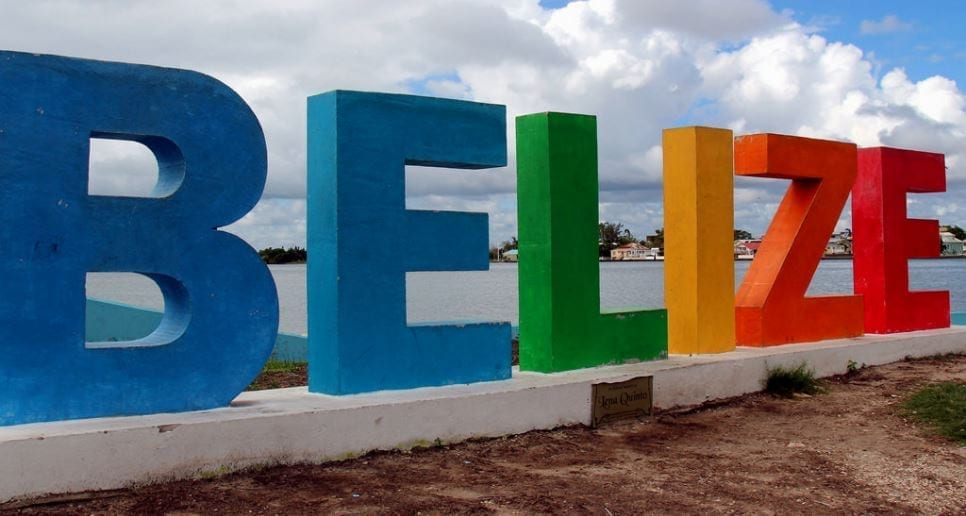
Inside Belize: How Human Trafficking Thrives when Governments are Complacent
Belize is the only country in Central and South America that received a Tier 3 rating, the worst rating given out by the State Department’s Office to Monitor and Combat Trafficking in Persons in its annual Trafficking in Persons (TIP) Report. Tier 3 countries include “countries whose governments do not fully meet the minimum standards* [to combat human trafficking] and are not making significant efforts to do so.” When a country’s government is complacent in the fight against human trafficking, its ratings fall. This is the fourth year Belize has failed to rise above Tier 3.
Although the prime minister of Belize, Dean Barrow, refutes the U.S. State Department’s claims that his government is complicit– the data collected by the State Department challenges that. In 2018 the Government of Belize did not investigate any public officials for complicity (despite many serious allegations). Law enforcement officials are not only untrained in handling trafficking cases but many are actively involved in protecting traffickers. It is not uncommon for off-duty police officers to work as security-for-hire at brothels. Officers may look the other way when it comes to sex trafficking so as not to lose their side jobs. Victims may not want to go to the police for protection since they know that some officers directly benefit from their exploitation. Thankfully, Belize’s police commissioner, Allen Whylie, has stated that police will no longer be allowed to perform these “special duties” after the 2018 TIP report specifically called out his police force over this heinous practice. We can only hope his words lead to meaningful reform.
Little has been done to prosecute traffickers, despite the creation of a dedicated anti-trafficking police force in 2017. In 2018, Belize’s government decreased efforts to prosecute traffickers, failing to convict a single trafficker for the second consecutive year. Belize is a “source, transit, and destination country for men, women, and children subjected to sex trafficking and forced labor” (2018 TIP Report). The number (0) of convictions does not reflect the severity of the trafficking situation in Belize but rather is a measure of the government’s utter complacency in the matter.
With a low probability of perpetrators being convicted, the trafficking industry is prolific in Belize. The child sex tourism industry is booming, with demand coming mostly from U.S. citizens. Relatives often facilitate the trafficking of women and girls into this industry. Traffickers also specifically target migrants (men, women, and children mostly from Central America, Mexico, and Asia) looking for work; offering them relatively high-paying jobs and then leveraging their illegal status to trap them into forced labor. Further, victims are often penalized and convicted for crimes that directly result from their victim status (violating the minimum standard of serious and sustained efforts to provide victim services).
The recent agreement, signed by Allen Whylie (Belize’s Commissioner of Police) on October 25th 2018, is a hopeful sign that Belize is making an effort to move out of Tier 3. The four-year agreement provides the beginning of an infrastructure for the anti-trafficking police to start making headway against Belize’s trafficking industry. This infrastructure looks like office space and vehicles for the anti-trafficking force to use for investigations, training, and interviewing victims. It also provides stipulations for essential training and resources needed for the force to effectively handle trafficking cases. This agreement was signed in Washington, DC in partnership with the Human Trafficking Institute following a 2014 delegation of Belize’s top law enforcement officials at the institute.
The biggest contributing factors to the flourishing trafficking industry are allegations of government complicity. Human trafficking is a complicated crime to combat. Victims are often intimidated into staying silent, especially when the government seems to be more interested in protecting traffickers. However, the guidelines for approaching this difficult task are clearly spelled out by the U.S. State Department’s Office to Monitor and Combat Trafficking in Persons. Allen Whylie’s stated commitment to reforming the way law enforcement fights trafficking and the police department’s partnership with the Human Trafficking Institute are promising steps. However, these words are only meaningful to victims if the force starts identifying victims, providing services, and punishing perpetrators. This means the implementation of radical department-wide changes to the way law enforcement approaches human trafficking.
*The “minimum standards” that governments must actively attempt to meet in order to rise above Tier 3 include: prohibiting and appropriately punishing acts of severe trafficking (on par with other serious crimes and serious enough to deter others from committing the crime) and serious and sustained efforts to eliminate severe trafficking. “Serious and sustained” efforts are defined by 12 provisions. Some of these include: vigorously investigating trafficking cases, providing data to the U.S. State Department on these investigations, protecting victims, prevention efforts, cooperation with other governments and NGOs, and severely punishing public officials who are involved with or facilitate trafficking. Read the full definition of the minimum standards for combating human trafficking here. Belize falls into the Tier 3 category because it fails to meet the requirements for any of the four “minimum standards” put forward by the TIP report and because of allegations of government complicity in trafficking cases.
Article by Sonia Lunn
